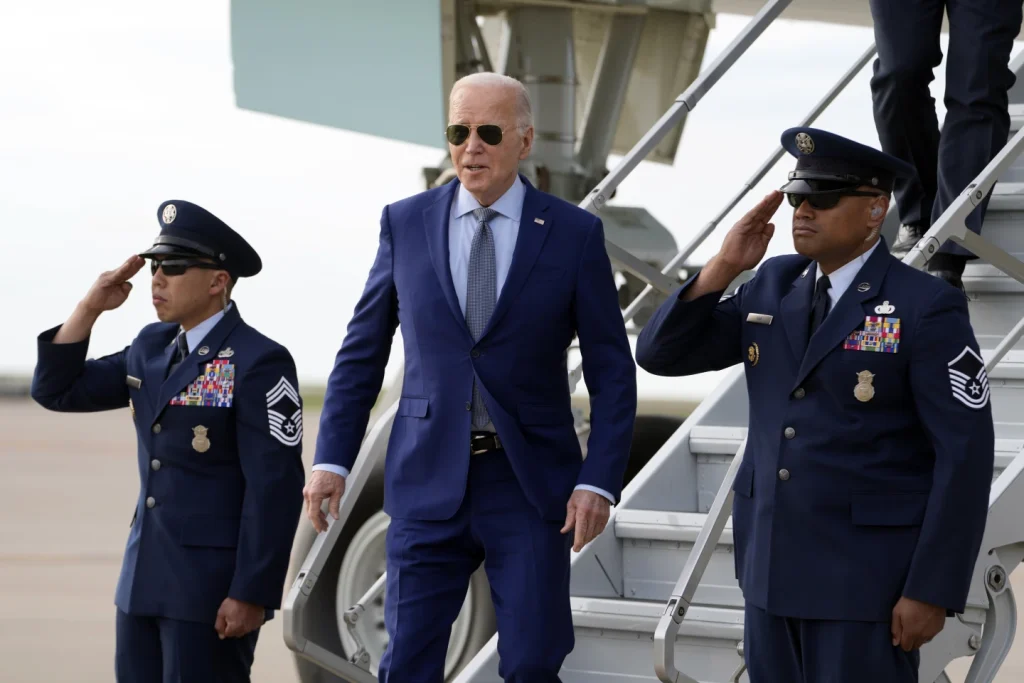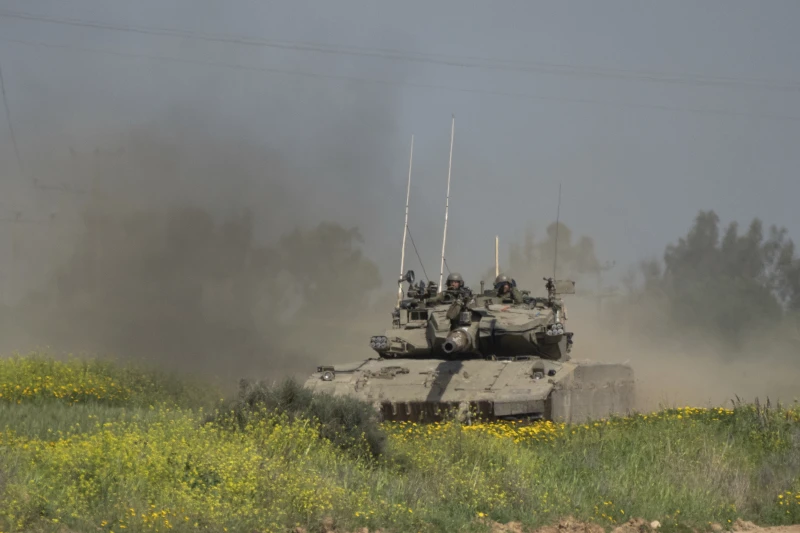The recent statements made by U.S. Secretary of State Antony Blinken regarding a potential Israeli ground assault on the southern Gaza town of Rafah have highlighted the strained relationship between the United States and Israel.
Blinken, who is currently on his sixth urgent mission to the Middle East since the outbreak of the conflict in October, emphasized that a major military operation in Rafah would be a mistake and unnecessary in defeating Hamas.
During discussions with top Arab diplomats in Cairo, Blinken stressed the urgent need for an immediate and sustained ceasefire, as well as the release of Israeli hostages held by Hamas.
He acknowledged that negotiations for a ceasefire were progressing, with the involvement of the U.S., Egypt, and Qatar.
These negotiations are set to continue at a senior level in Qatar, with Blinken heading to Israel to meet with Prime Minister Benjamin Netanyahu and his War Cabinet.
The disagreements between Netanyahu and President Joe Biden over the prosecution of the war are likely to overshadow the upcoming talks, particularly regarding Netanyahu’s insistence on launching a ground assault on Rafah.
Despite Netanyahu’s belief that a major military operation in Rafah is necessary to achieve Israel’s goal of destroying Hamas, Blinken reiterated that such an operation would be a mistake and not the only way to deal with the militant group.
Blinken expressed concerns about the potential civilian casualties and worsening humanitarian crisis that a major offensive in Rafah would cause.
He emphasized the need to explore alternative actions and share ideas for targeted operations against known Hamas fighters and commanders, rather than resorting to a full-scale ground assault.
The shifting U.S. position on a Rafah operation reflects the complexity of the situation on the ground and the challenges of ensuring the safety of civilians in densely populated areas.
While initially hesitant to support a major incursion into the city without a clear plan for protecting civilians, U.S. officials have now concluded that such a plan is not feasible given the population density in Rafah.
In conclusion, the statements made by Antony Blinken underscore the importance of finding diplomatic solutions to the conflict in Gaza and avoiding actions that could escalate the violence and humanitarian crisis.
As efforts for a ceasefire and negotiations for Gaza’s post-conflict future continue, it is crucial for all parties involved to prioritize the protection of civilian lives and work towards a sustainable peace in the region.
The ongoing conflict in the Middle East, particularly between Israel and Gaza, has captured the attention of the international community due to its devastating consequences on civilian populations and the political maneuverings of key players involved.
The recent developments surrounding Israeli Prime Minister Benjamin Netanyahu’s determination to proceed with military operations in Rafah, despite opposition from various quarters, underscore the complexities and challenges inherent in resolving the conflict.
Netanyahu’s defiance of warnings and criticisms from both domestic and international figures, such as Senate Majority Leader Chuck Schumer and President Joe Biden, reflects his unwavering commitment to prosecuting the war in Gaza to its fullest extent.
This stance has not only drawn criticism from within Israel but has also raised concerns about the erosion of bipartisan support from the United States, as Netanyahu is perceived to be aligning closely with Republican leaders.
Against the backdrop of escalating violence and mounting civilian casualties in Gaza, efforts to broker a cease-fire and provide humanitarian aid have been underway.
The recent meeting in Cairo, attended by U.S. Secretary of State Antony Blinken and Arab ministers, aimed to address the urgent humanitarian needs of the people in Gaza and explore avenues for de-escalation.
Discussions centered on increasing the delivery of humanitarian aid through various channels and emphasized the importance of preventing a humanitarian crisis, including the looming threat of famine in northern Gaza.
The involvement of key regional players, such as Egypt, Jordan, Qatar, Saudi Arabia, and the United Arab Emirates, highlights the broader implications of the conflict and the shared responsibility in finding a peaceful resolution.
Calls for an immediate cease-fire, underscored by warnings of dire consequences and the need to avert further displacement of Gazans, signal a collective commitment to mitigating the humanitarian impact of the conflict.
Despite indications of progress in narrowing the gaps towards a cease-fire agreement, challenges persist, necessitating continued diplomatic efforts and engagement with mediators.
The involvement of intelligence agencies and high-level officials in ongoing talks reflects the gravity of the situation and the commitment to finding a sustainable solution that safeguards civilian lives and enables the delivery of essential aid.
The push for a revised U.N. resolution demanding an immediate and sustained cease-fire underscores the international community’s resolve to address the crisis and protect vulnerable populations.
The resolution’s emphasis on humanitarian considerations and the decoupling of cease-fire demands from hostage release requirements highlights the nuanced approach needed to navigate the complexities of the conflict.
At the heart of the conflict lies the longstanding issue of Palestinian statehood and the quest for a peaceful resolution that ensures the security and rights of all parties involved.
The Biden administration’s advocacy for an independent Palestinian state as a cornerstone of long-term security in the region contrasts with Netanyahu’s stance, underscoring divergent perspectives on the path to peace and stability.
The pursuit of normalization agreements between Israel and Arab nations, contingent on progress towards a Palestinian state, underscores the interconnected nature of regional dynamics and the potential for broader diplomatic shifts.
Netanyahu’s strategic engagement with key regional players, including Saudi Arabia, reflects a calculated approach to advancing Israeli interests and fostering regional cooperation.

As diplomatic efforts intensify and the humanitarian crisis deepens, the imperative for immediate action and sustained dialogue remains paramount.
The upcoming discussions between Israeli officials and U.S. counterparts signal a willingness to engage in constructive dialogue and explore avenues for de-escalation and conflict resolution.
In conclusion, the multifaceted dimensions of the conflict in the Middle East underscore the urgent need for coordinated international efforts, diplomatic engagement, and a commitment to upholding humanitarian principles.
The path towards peace and stability in the region hinges on navigating complex political dynamics, addressing humanitarian imperatives, and fostering dialogue towards a sustainable resolution that safeguards the rights and well-being of all affected populations.

